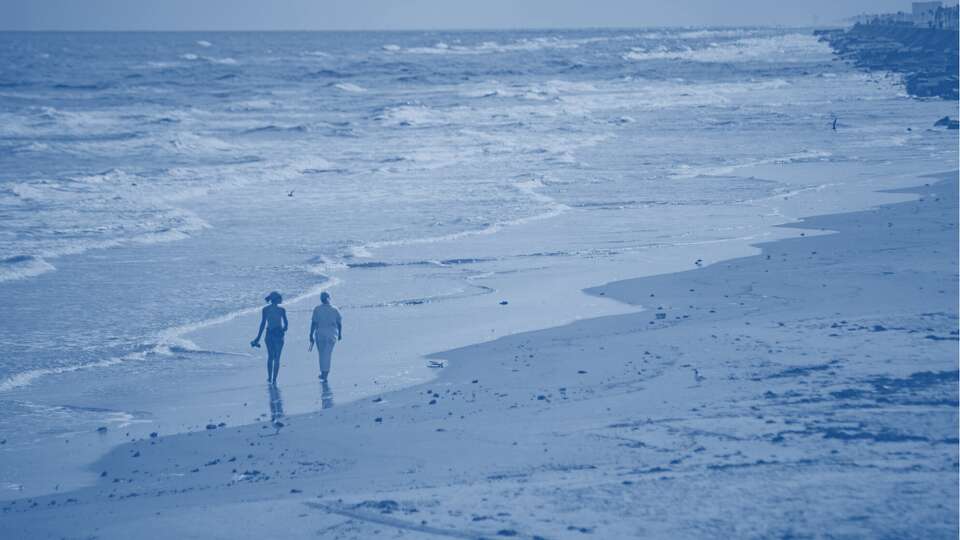June 25, 2024

Are Houston beaches nice? Depends on your definition of 'nice' and 'beach'
First, which beaches are you talking about? If you mean the pools and ponds of Hermann Park, which are actually in our city, please step out of the water. Those are for the ducks.
Houston is miles away from the beach. We are a port city due only to force of will rather than forces of nature. That commercial ships have come and gone from Houston for more than a century is a testament to the tenacity of dreamers, engineers and opportunists.
The "beach" question more likely refers to Galveston, our neighbor 50 miles southeast, which does, in fact, have beaches. Perhaps it refers to the Bolivar Peninsula, which has beaches, though they don't look exactly the same pre- and post-Hurricane Ike.
So let's get to your question
Well, the answer is as clear as the Gulf Coast water, which is to say the sort of brackish paradise suitable for bull sharks.
It all depends on one's hopes, dreams and expectations from a beach. If the goal is sand in which to play and saltwater in which to swim, then yes, "Houston" beaches are nice because they have water in which to swim and sand in which to play.
Beach Meter, a beach-minded travel site, polled its readers about the most important beach destination features. The highest ranking were: "natural beauty," "sea water quality," "sand quality," "beach cleanliness" and "weather."
Via these metrics, our region doesn't fare quite so well.
The radiant azure waters and puffy white sand of fancy beaches are not what we have here. Those photogenic beaches also don't contend with "lightering" as many Gulf Coast beaches do. (Look up that word at your own risk.)
One incident should not define a beach, but I once witnessed a gaggle of children screaming as they ran away from a "jellyfish" that was, in fact, a discarded diaper with crabs dangling from it at Jamaica Beach on Galveston Island. (Sidebar: It's a flushing disaster!)
By other metrics — "accessibility," "activities," family-friendliness" — our beaches do better. Another way of saying, "Swim with them who brung you."
Our beaches certainly do not require an airplane ride. That's nice. (Galveston, the town, remains a historic and haunted place with a lot to offer beyond its beaches.)
Texas boasts a lot of beach, with a 367-mile coastline, according to the Bureau of Economic Geology, and all but 87 miles of it are accessible to the general public. If accessibility is your metric, Texas ranks well: sixth in the nation for coastline mileage.
Our beaches got pulled into a public debate recently. Basketball commentator Charles Barkley, who nearly two decades ago joined the Houston Rockets in his fruitless search for a championship, besmirched Galveston's beaches for their "dirty water."
Dirty commentary, more like.
I'm reminded of Marshall Biggs in "The Fugitive," who, in a scene set in Chicago on St. Patrick's Day, wondered, "If they can dye this river green today, why can't they dye it blue the other 364 days of the year?"
Alas, dyeing the Gulf of Mexico would be a Herculean task.
Worth noting: The water is innocent in this debate. It is a canvas painted by all manner of natural occurrences, including weather and wind, as well as human stains in the form of industry and litter.
At times, the water appears very blue. Other times the beach is menaced by the threat of a "5,000-mile seaweed blob."
An estimated 8 million people visited Galveston last year, and beach attendance has risen sharply over the past three years.
So millions of us, at least, agree that our beaches are wet enough, sandy enough — and accessible — which sounds like a way of saying "nice enough."
 | Andrew Dansby |
Ask Us Anything
What stumps you about Houston? Reply directly to this email with your questions.
Your questions, explained
Reader Question: What is known about Sam Houston's relationship with Anna Raguet? - Liz Nuchia
Houston was very much smitten with Raguet, whom he met while he was living in Nacogdoches in 1833.
"Peerless Miss Anna!" — as he referred to her in a letter — was the daughter of a Pennsylvania businessman who had relocated to Texas. Houston was 26 years her elder.
Some fogginess surrounds their connection, likely due to one of them possessing stronger feelings than the other. While doctors treated him after the Battle of San Jacinto, Houston fashioned a garland of laurel that he sent to her, but he received no reply.
Maybe it was a "Dude, she's just not into you" scenario. More likely, Raguet was frustrated with Houston's inability to secure a divorce from his first wife, Eliza Allen, which wasn't finalized until 1837.
"I have written her so often that I fear she has found me troublesome," he wrote to Robert Irion, his personal secretary at the time. Irion — who would later serve as the Republic of Texas' secretary of state — doubled as Houston's messenger to Raguet.
By 1840, both Houston and Raguet had wed. Houston's tumultuous love life found a peaceful place when he married Margaret Lea, with whom he spent the rest of his days.
That same year, Raguet married Irion, who delivered Houston's love letters. They named their first child Sam Houston Irion.
Unsubscribe | Manage Preferences

Houston Chronicle
4747 Southwest Freeway, Houston, TX 77027
© 2024 Hearst Communications


No comments:
Post a Comment